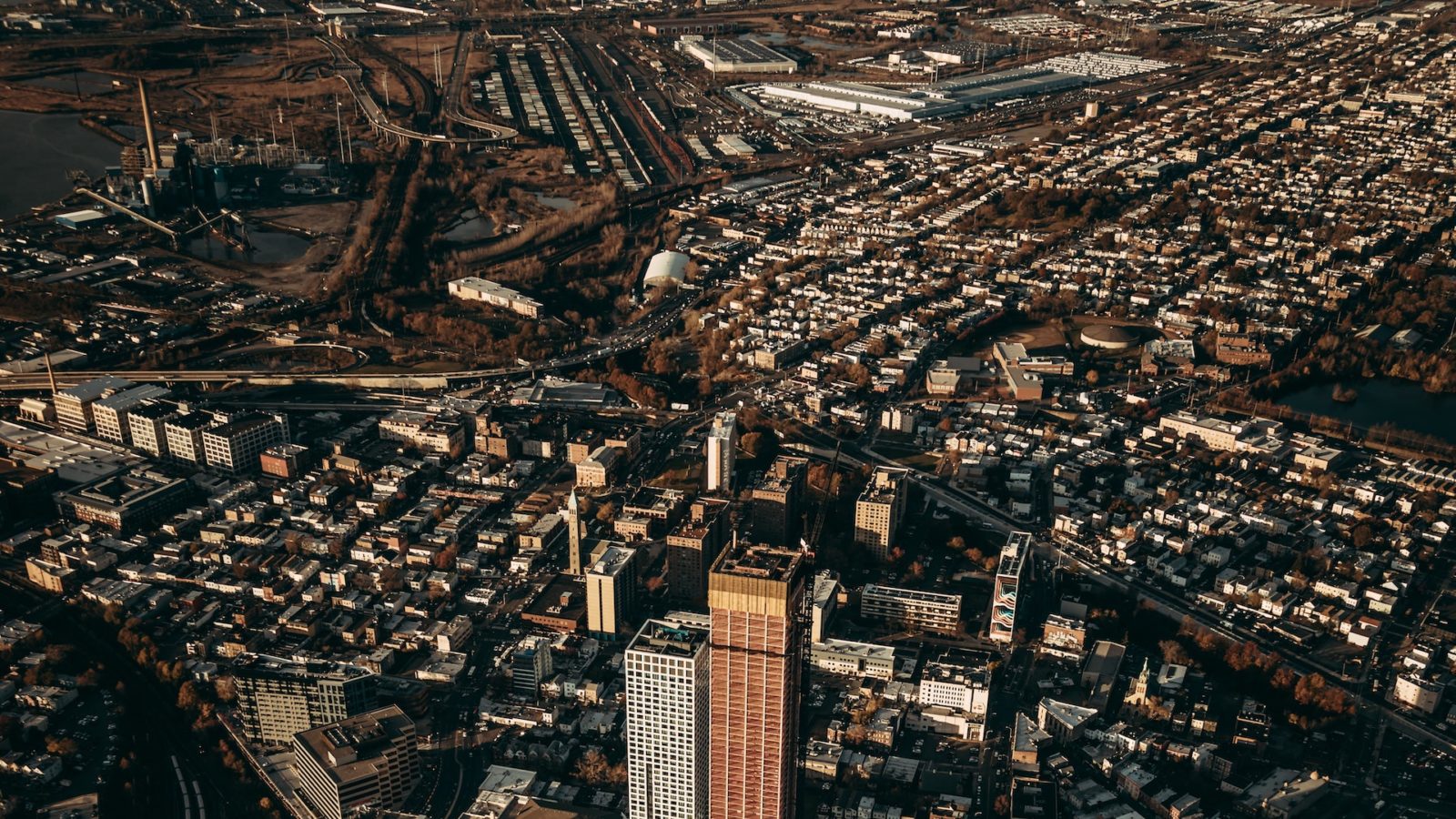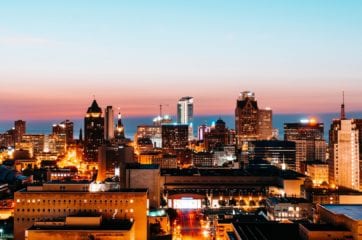Last week on the afternoon of August 27th, New Jersey’s legislative branch passed Senate Bill 232, a historic piece of legislation acknowledging the disproportionate impacts of climate change on environmental justice communities and implementing measures to make it far more difficult for industries to pollute. Now, the bill will go to Governor Phil Murphy, who has already indicated that he would sign it into law.
Different versions of this bill have been proposed and supported by environmental justice advocates in the state for over a decade, but for the first time this session, the legislation received serious traction, allowing it to pass. A large factor in this has been Gov. Murphy’s outward support for the bill, which he announced in June after protests against racial injustice broke out across the country in response to the murder of George Floyd.
With little opposition, the bill passed quickly and easily through the legislature, giving hope to communities that have long been overburdened by toxic facilities’ placement.
“I think the whole atmosphere, all the issues around Black Lives Matter, around prison reform — this [bill] combines much of that philosophy with an environmental focus, and recognizes that mostly communities of color have suffered from the inequities,” Senator Loretta Weinberg, a sponsor of the bill who has championed its efforts since 2008, told Climate XChange. The move represents a larger surge across the country for environmental justice as pleas for racial equity have re-emerged.
How does this bill support environmental justice?
Ultimately, this bill places restrictions on corporations aiming to build or modify polluting facilities, such as power plants, waste sites, or manufacturing establishments, in what the bill defines as “overburdened communities.”
“We really wanted to send a message that, regardless of someone’s zip code, income or race, they deserve the right to breathe clean air and drink clean water, and frankly, to live free of toxic pollutants,” Senator Troy Singleton, the bill’s primary sponsor and advocate, told Climate XChange.
To determine these communities, the bill uses local census measures, and if neighborhoods have 35% low-income residents, 40% non-White, or 40% with limited English-speaking capabilities, they are defined as “overburdened.” In New Jersey, this accounts for at least 310 different municipalities. These communities are typically the same areas that are targeted to build polluting sites, because the people living in there have not been a priority for decision-makers, often due to systemic racism and inequality.
All polluting facilities that hope to develop a new project, expand an existing project, or renew state permits are now required to undergo a new review through the Department of Environmental Protection, according to the bill. This process involves an analysis of all environmental and public health impacts that a certain facility would have. It also requires the facility to hold a public hearing in the community it plans to build in, giving the public an opportunity for input that it has never had access to before.
This bill gives environmental justice communities greater autonomy over the industries that develop in their neighborhoods, and will help to protect them from some of the worst impacts of toxic pollution.
New Jersey’s toxic legacy
The Garden State has a long history of allowing the construction of toxic waste sites. The state was a hub for polluting industries during the industrial revolution, when environmental regulations were non-existent, and that legacy still persists today.
According to state records, New Jersey has 114 Superfund sites — more than any other state in the country. Superfund sites are extremely polluted and hazardous areas in the United States that require long-term treatment to adequately minimize health risks. This leaves more than 14,000 homes across the state at risk to toxic exposure, which is not equally distributed. Low-income and BIPOC neighborhoods are more at risk of being near those sites than any other communities.
“The Ironbound section of North New Jersey was, and to some degree still is, the industrial core of the city of Newark. You’ll look there and you’ll see an oversaturation of the type of facilities that this bill will cover in a one to two square mile radius. And there are communities that have dealt with multi-generational chronic health problems that frankly, don’t exist in wealthier, less polluted communities,” Senator Singleton said.
A recent study released by the Shriver Center on Poverty Law found that 70% of American Superfund sites are located within one mile of federally assisted housing projects. Using New Jersey as a case study, the researchers examined the U.S. Metals Refining Company, located in Carteret, NJ, where about 700 government housing units are located within or in very close proximity to the contaminated Superfund.
“These communities are not only affected by Superfund Sites but also impacted by the worst pollution in the country. Overburdened communities face unhealthy levels of air pollution. They also have high levels of lead coming from industrial facilities and Superfund sites as well as in their schools and homes with lead pipes and paint,” said Jeff Tittel, New Jersey Sierra Club Director.
Senator Weinberg was inspired to sponsor Senate Bill 232 because of these effects, after she toured residential areas located near these sites. “I saw it for my very own eyes,” she told Climate XChange, adding, “the connection is really quite obvious.”
Passing SB 232 gives New Jersey an opportunity to address its past, and begin to build a more equitable future for communities on the front lines of the climate crisis.
Environmental justice is becoming more of a priority
For many political leaders across the country, the current exposure of continued racial injustice in the United States has served as an opportunity to push for stronger legislation. Within the environmental movement, this has allowed environmental justice to take center stage as advocates realize that there can be no climate justice without racial justice. This is particularly true considering BIPOC communities are consistently facing the worst impacts of climate change.
The passage of Senate Bill 232 in New Jersey, which was stagnant for a decade before this session, is a prime example of this, and is symbolic of more justice legislation to come both in New Jersey and across the country.
This bill passage also comes on the heels of the Democratic National Convention, which highlighted environmental justice in a way that no major party convention has ever done before. The convention featured youth activist Katherine Lorenzo, who grew up in a primarily Latina community in Nevada, where air pollution has caused health problems in her neighborhood for decades due to their close proximity to polluting sites. These issues have rarely been addressed by a major party, and signals a shift towards a greater focus on environmental justice impacts not only at the state level, but also the federal, at a moment in American history when addressing racial injustice is critical.
“We hope that this will be a template for other states to put together legislation. Ultimately, it would be our goal to have this be a national standard… that would be a great legacy for us to leave,” Senator Singleton told us.
For the first time in many years, environmental justice communities and advocates in New Jersey are finally beginning to see their efforts come to fruition, and are hopeful for the future.






